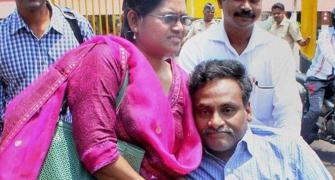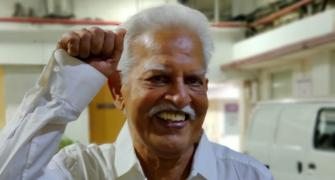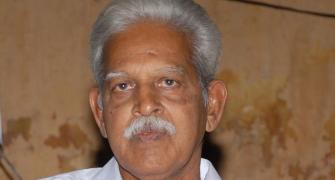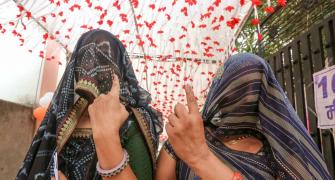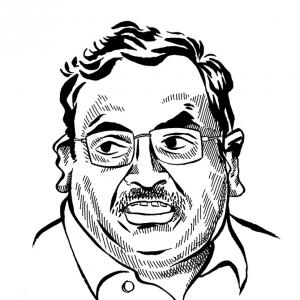This is not the first time the Nagpur Jail authorities are being accused of negligence towards their inmates.
Jyoti Punwani reports.
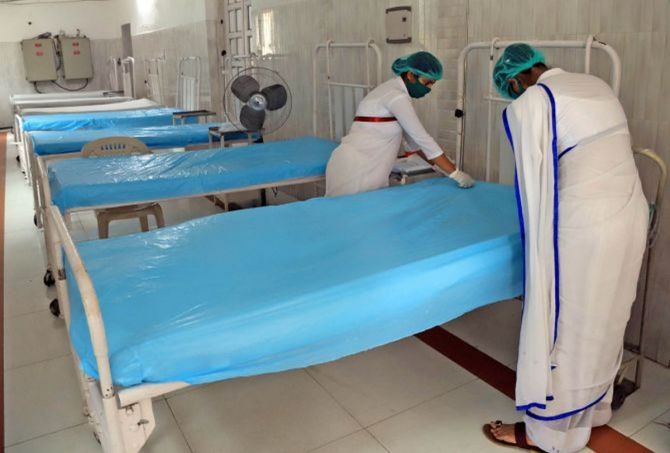
Do prisoners in Maharashtra have the right to health?
It would seem not, going by the way Pandu Narote spent his last days.
Pandu Narote, an inmate of the Nagpur Central Jail, died at Nagpur's Government Medical College and Hospital on Thursday evening. He was just 35.
Pandu, an Adivasi from Gadchiroli, was convicted in 2017 under the Unlawful Activities (Prevention) Act -- UAPA -- on charges of having links with Maoists, along with Delhi University Professor G N Saibaba, former journalist Prashant Rahi, former JNU student Hem Mishra, and Gadchiroli resident Mahesh Tirki. He was in jail since then, with no health problems, his lawyer Akash Sorte told Rediff.com.
His death came as a shock to his lawyer as well as to Narote's family members. "My brother had met Pandu a month and a half back," Pandu's younger brother Ajit told Rediff.com. "He was okay."
Ajit revealed that they received a letter from the local police station on August 21, informing them that Pandu had been admitted to the GMCH. "But when we reached the hospital, we found him in a very serious condition. He told us he had been ill for five or six days before that."
Pandu was admitted to the GMCH on August 20. According to Advocate Sorte, before that, neither the family, nor Sorte, were informed by the jail authorities that Pandu was sick. Sorte learnt from the family of another inmate that Pandu was being treated in the Nagpur Jail hospital.
When Advocate Sorte met his client at the GMCH, the latter told him that for the previous five days, he had been vomiting blood and also passing blood in his urine.
"The Nagpur Jail Hospital was not equipped to treat him," says Advocate Sorte. "It seems to me that when his condition became too serious, they admitted him to the GMCH. Even though he was on the ventilator there, he made an effort to talk, begging me to take him away from the GMCH," the lawyer adds.
"Pandu felt he was not being given the treatment he needed," explains Advocate Sorte. "He was kept in the general ward. I could see his urine bag was full of blood, but the doctors told me it was influenza and the virus had spread through his body."
Accusing the Nagpur Central Jail of "negligence", Advocate Sorte wants to know why they had not treated Pandu in time, instead of only admitting him to the ill-equipped prison hospital.
His brother too wondered why they were not informed earlier. "They had our phone number," he says.
However, an official from the Nagpur Central Jail says that as soon as Pandu was admitted to the GMCH, they sent a letter to the police station. "That's the practice. When an inmate is under the care of the jail doctor, we don't need to inform the family."
Pandu's family, comprising his parents, three brothers, two sisters and his 15-year-old daughter, lives in a village deep in Gadchiroli's forests. Pandu was the eldest child.
On September 5, the final hearing on the appeal against the conviction of Pandu and his co-accused was to come up in the Nagpur high court. But it will be too late for Pandu.
This is not the first time the Nagpur Jail authorities are being accused of negligence towards their inmates. Ninety per cent handicapped Professor G N Saibaba, housed in the same jail, has frequently complained of not being given the medical treatment he needs by the jail authorities, who have even flouted court orders in the matter. Professor Saibaba has even gone on hunger strike twice.
The case of the 16 intellectuals arrested in the Bhima Koregaon case since 2018, who are still to stand trial, is no different. Housed in the Taloja and Arthur Road jails, they have had to appeal to court repeatedly for basic health facilities.
82-year-old Telugu poet Professor Varavara Rao got medical bail earlier this month from the Supreme Court. Professor Hany Babu and Father Stan Swamy were admitted to private hospitals only on the court's insistence. Father Stan, aged 84, died in hospital.
Pandu Narote has now become another Stan Swamy.
Feature Presentation: Aslam Hunani/Rediff.com

